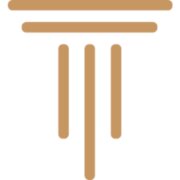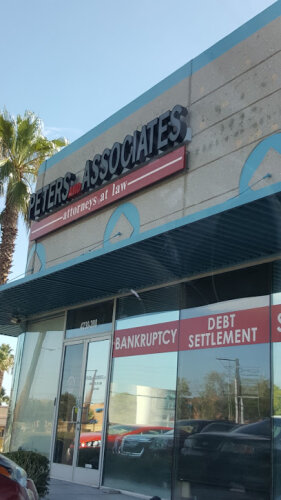Best Consumer Protection Lawyers in Las Vegas
Share your needs with us, get contacted by law firms.
Free. Takes 2 min.
List of the best lawyers in Las Vegas, United States
About Consumer Protection Law in Las Vegas, United States
Consumer protection law is designed to protect buyers of goods and services from unfair, deceptive, and fraudulent business practices. In Las Vegas those protections come from a mix of federal statutes, Nevada state law, and local ordinances. Federal laws address areas such as credit reporting, debt collection, advertising, and product safety. Nevada statutes and state agencies handle many common consumer disputes and enforce rules against deceptive trade practices in the marketplace.
In Las Vegas many consumer matters are handled through administrative complaints, negotiation with the business, small claims court, or civil litigation in state court. Remedies can include refunds, repairs, replacement, cancellation of contracts, restitution, civil damages, and sometimes attorney-fee awards. The practical route depends on the type of problem, the dollar amount involved, and whether an ongoing risk exists.
Why You May Need a Lawyer
Not every consumer problem requires a lawyer, but legal help is often valuable when a dispute is complex, the potential recovery is significant, or the opposing party is represented by counsel. Common situations where people need a lawyer include:
- Significant financial loss from a scam or fraud where the business refuses to repay.
- Warranty disputes involving automobiles, major appliances, or other expensive items that the seller or manufacturer will not repair or replace.
- Complex contract disputes - for example home improvement contracts, timeshare sales, or large retail purchases that involve arbitration clauses and terms the consumer may not understand.
- Debt collection abuses - if a debt collector is using harassing, misleading, or illegal collection tactics.
- Class action or multi-plaintiff situations where individual coordination and legal strategy matter.
A lawyer can evaluate legal claims, explain your chances, gather evidence, draft demand letters, negotiate settlements, represent you in court or arbitration, and protect your rights against counterclaims or procedural traps. Attorneys can also advise about statutory deadlines, potential damages, and whether fees can be recovered.
Local Laws Overview
Key legal frameworks that affect consumers in Las Vegas include:
- Nevada consumer protection statutes - Nevada law prohibits deceptive trade practices and provides mechanisms for enforcement and remedies. State agencies investigate complaints and may bring enforcement actions against businesses that violate consumer laws.
- Local enforcement - Clark County and Las Vegas departments receive consumer complaints and may mediate disputes, investigate local businesses, and inform residents about scams and local regulations.
- Federal protections - Many consumer disputes overlap with federal statutes such as the Fair Debt Collection Practices Act, Fair Credit Reporting Act, Truth in Lending Act, Magnuson-Moss Warranty Act, and federal advertising and product safety rules enforced by federal agencies.
- Contract and arbitration rules - Many transactions involve written contracts that may include arbitration clauses or class action waivers. Arbitration can limit court access, so it is important to have contracts reviewed where possible before signing and to understand your rights if a dispute arises.
- Special statutes - Nevada has laws that address specific areas like motor vehicle warranties, timeshares and vacation ownership, and door-to-door or off-premises sales. Consumer cooling-off rights apply in certain situations and may allow cancellation within a limited time after signing.
Frequently Asked Questions
What counts as deceptive or unfair business conduct in Las Vegas?
Deceptive or unfair conduct includes false statements about products or services, hidden fees, misrepresentations about the quality or scope of work, bait-and-switch sales tactics, and omissions of material facts that a reasonable consumer would need to know. Both Nevada law and federal statutes prohibit these types of practices. Facts matter - documentation, advertisements, contracts, and witness statements help prove a claim.
How do I file a consumer complaint in Las Vegas?
Start by contacting the business to request a refund, repair, or correction. If that fails, you can file a complaint with state and local agencies that handle consumer issues, and you can file in small claims court for smaller dollar disputes. Keep a clear record of communications, receipts, contracts, and photographs. If the business is unresponsive or the issue is serious, consider consulting an attorney for further action.
How long do I have to bring a consumer protection claim?
Time limits vary depending on the legal theory - for example breach of contract, fraud, or statutory consumer claims each have their own deadlines. These deadlines are called statutes of limitations and can range from a couple of years to longer. Because time limits can begin when you discovered the problem, it is important to act promptly and consult a lawyer if you think you may have a claim.
Can I sue a business for false advertising or misrepresentation?
Yes, you can pursue claims for false advertising or misrepresentation if you relied on a false statement and suffered damages. Remedies may include refunds, contract rescission, and damages. Some claims are enforced by state or federal agencies, and others can be brought as private lawsuits. Evidence such as marketing materials, contracts, and communications is essential.
What should I do if a product I bought is defective?
Document the defect with photos or video, keep the product and packaging, and review the warranty and purchase receipt. Contact the seller or manufacturer to request repair, replacement, or refund. If the seller refuses, you can file complaints with consumer protection agencies or consider a lawsuit. For vehicle defects there may be lemon law protections or manufacturer buyback remedies under state law.
Can a company add hidden fees after I signed a contract?
Companies generally cannot enforce fees that were not properly disclosed in the contract or that are deceptive. Disclosure requirements depend on the type of transaction. If you believe a fee was hidden or improperly added, preserve the contract and all notices, and seek advice about whether you can contest the charge or recover the amount charged.
What rights do I have when dealing with debt collectors?
Federal law prohibits debt collectors from using abusive, deceptive, or unfair practices. You have the right to request verification of the debt, to ask collectors to stop contacting you, and to dispute inaccurate debts. If a collector violates the law you may have a claim for damages. Keep records of calls, messages, and any written communications.
Can I cancel a contract I signed door-to-door or under pressure?
Certain transactions have statutory cancellation rights - for example some door-to-door sales and specific consumer services allow a short cooling-off period during which you can cancel without penalty. Other pressured sales may be voidable if the seller used fraud or misrepresentation. Review the contract and the applicable laws and act quickly if you want to rescind.
Do I need an attorney to file a small claims court case?
Small claims court is designed to be accessible without an attorney for lower dollar disputes. However, an attorney can help evaluate the strength of your claim, prepare evidence, and present the case. For larger or legally complex disputes you will likely benefit from retained counsel. Check local small claims limits and rules before filing.
How do I find a qualified consumer protection lawyer in Las Vegas?
Look for attorneys who focus on consumer law, have experience in the specific issue you face, and who offer an initial consultation. Ask about fee arrangements - hourly, flat, or contingency - and whether the lawyer has handled similar cases. You can get referrals from the state bar referral service, legal aid groups, or trusted local sources. Read reviews and request references for similar matters when possible.
Additional Resources
The following organizations and agencies are useful starting points when you need help or want to submit a complaint:
- Nevada Attorney General - consumer protection division that handles complaints and enforcement.
- Clark County consumer protection or consumer affairs office - for local complaints and mediation.
- Federal Trade Commission - handles national consumer issues and investigates scams.
- Consumer Financial Protection Bureau - handles complaints about financial products and services.
- Better Business Bureau - serves as a mediation forum and collects company complaint histories.
- Nevada legal aid organizations - provide low-cost or free legal help for income-qualified residents.
- Nevada State Bar - lawyer referral services and resources to verify attorney credentials and discipline history.
- Local court clerks and small claims court - for information on filing procedures and fees.
Next Steps
Follow these practical steps to protect your rights and prepare for potential legal action:
- Gather documentation - keep receipts, contracts, warranties, emails, texts, photos, and a written timeline of events.
- Communicate in writing - send a clear demand letter to the business stating the problem and the remedy you seek, and keep proof of delivery.
- Preserve evidence - do not discard the product, and preserve electronic communications and call logs.
- File complaints - report the issue to relevant state and local consumer agencies and to federal agencies if applicable.
- Consider informal resolution - mediation or arbitration may resolve the dispute more quickly and cheaply than litigation.
- Evaluate legal options - consult a consumer law attorney for a case assessment, statute of limitations check, and advice on likely outcomes and costs.
- Act promptly - many remedies require early action, and delays can limit your options.
If you are in immediate danger of financial loss or believe you are a victim of criminal fraud, consider contacting local law enforcement in addition to consumer protection agencies and an attorney. This guide provides general information and is not legal advice. For help specific to your situation consult a licensed attorney in Nevada.
Lawzana helps you find the best lawyers and law firms in Las Vegas through a curated and pre-screened list of qualified legal professionals. Our platform offers rankings and detailed profiles of attorneys and law firms, allowing you to compare based on practice areas, including Consumer Protection, experience, and client feedback.
Each profile includes a description of the firm's areas of practice, client reviews, team members and partners, year of establishment, spoken languages, office locations, contact information, social media presence, and any published articles or resources. Most firms on our platform speak English and are experienced in both local and international legal matters.
Get a quote from top-rated law firms in Las Vegas, United States — quickly, securely, and without unnecessary hassle.
Disclaimer:
The information provided on this page is for general informational purposes only and does not constitute legal advice. While we strive to ensure the accuracy and relevance of the content, legal information may change over time, and interpretations of the law can vary. You should always consult with a qualified legal professional for advice specific to your situation.
We disclaim all liability for actions taken or not taken based on the content of this page. If you believe any information is incorrect or outdated, please contact us, and we will review and update it where appropriate.









